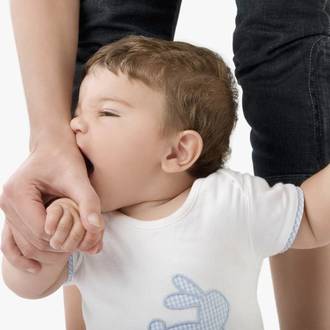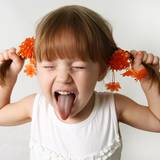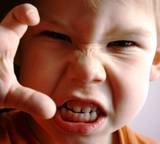Shop
01839
https://www.under5s.co.nz/shop/Hot+Topics+Articles/Child+Development/Toddlers+who+bite.html
Toddlers who bite
|
Biting amongst toddlers is not uncommon. In most cases it’s just a phase they go through. We take a look at why toddlers bite and ways to help eliminate their biting altogether.
|
You might also be interested in ...
Understanding disruptive behaviour
What constitutes ‘disruptive’ behaviour in young kids is very subjective. However, by looking deeper at your child’s behaviour it will help you understand more about why they act in a certain way. Behaviour that can appear ‘naughty’ or ‘disruptive’ to you, is often just your child’s way of communicating an unmet need as they try to figure out their way in the world.
Dealing with aggressive behaviour
There may seem to be no clear reason as to why children become aggressive, but often it is caused when they are finding it difficult to express their feelings through words. We look at the three main causes of aggression and share some ideas to help overcome and reduce aggressive behaviour and bring it under control.
join usJoin us on social media for all our latest news. |
sign upSign up and receive our latest newsletters. |
|







We take a look at why toddlers bite and ways to help eliminate their biting altogether.
Why toddlers bite
There are many reasons why toddlers bite, but ultimately it’s their way of coping when they’re unable to express their frustration, when they're over-tired, when they're unable to communicate effectively or they're stressed.
Biting is a substitute for their words and feelings.
Toddlers don’t always have the necessary language skills to communicate effectively with others about their feelings. Instead they bite someone when they can’t explain what they want or feel.
Life as a toddler can be stressful as they learn about the world around them.
Toddler tantrums and the 'terrible twos' are common and it’s not unusual for biting to occur during one of their fits as a means of expressing their anger.
Biting can make them feel powerful because of the reaction and attention they get as a result of biting someone else.
Having to share things such as toys and books is one of the most common triggers for biting. Toddlers who are still too young to understand the true concept of sharing and taking turns, often resort to biting other children.
Commonly, although not always the case, it’s the youngest child in the family who is the family biter. While their older siblings can easily communicate their needs and get what they want, toddlers are often frustrated when they can’t do the same.
Anticipate the biting
By trying to understand the underlying cause of why your toddler is biting, it will help you develop an effective response and ultimately eliminate their behaviour.
Firstly try to anticipate when a bite might occur and identify the kinds of situations which often lead to your toddler biting others.
For example:
Ways to help stop the biting
If you see signs that your toddler might be about to bite someone:
Although it's not always easy, remember it's a phase your toddler is going through and it will soon pass.
When you do catch your toddler playing nicely, make sure to praise them to help reinforce their good behaviour.
More kids behaviour articles to enjoy:
- Dealing with aggressive behaviour
- Understanding disruptive behaviour
Image source: yallbehave.com